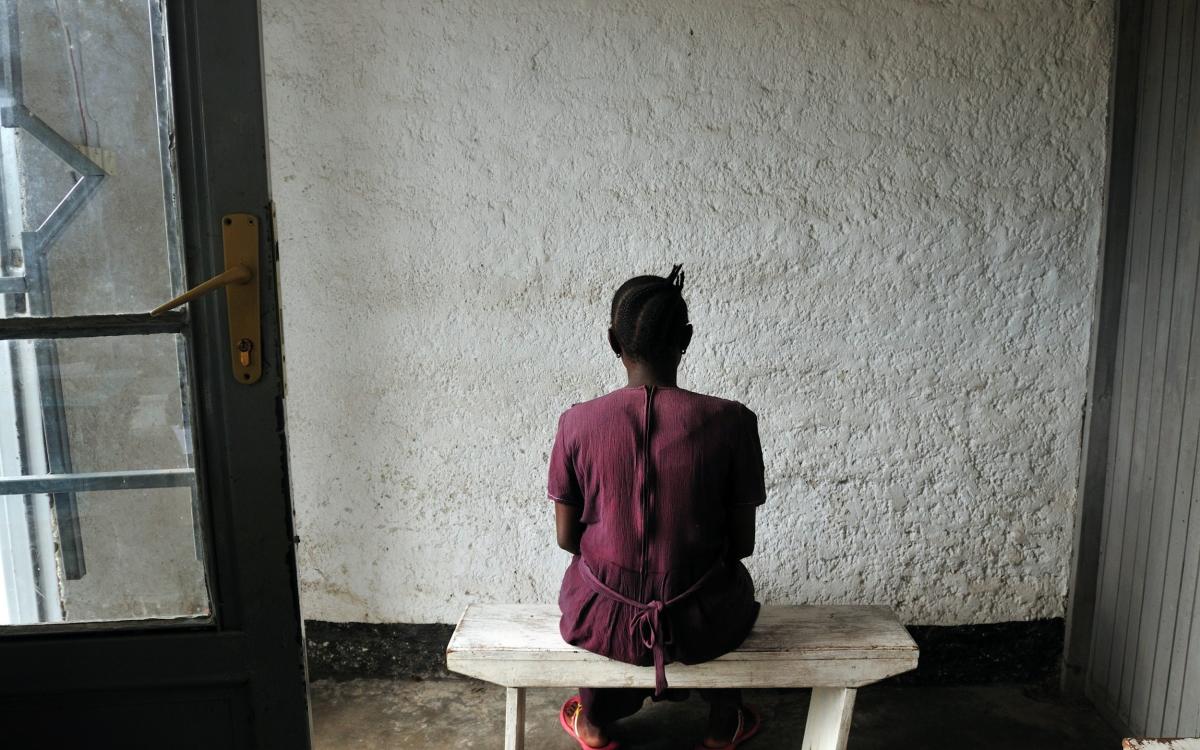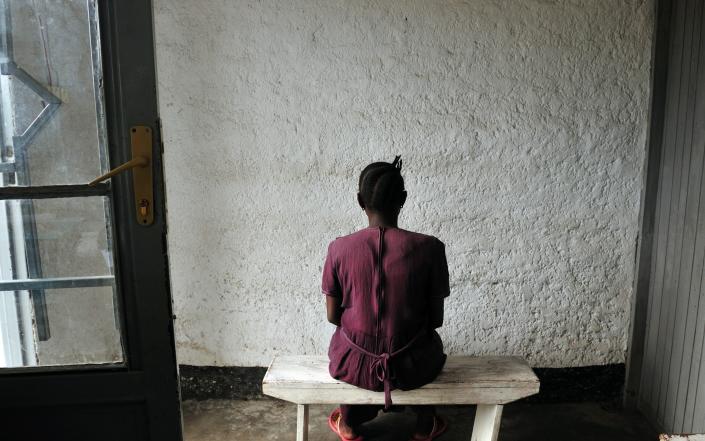
Warning: This article contains graphic content
In late November, dozens of women were raped by rebels in the Democratic Republic of Congo for nine days. Many of the victims were gang raped, others were raped in front of their children.
In the following three months, they have not received adequate medical treatment or psychological support. The authorities are now accused of failing to investigate what Amnesty International describes as “war crimes”.
The new findings of the human rights organization are distressing to read. Amnesty confirmed that at least 66 women aged between 17 and 58 were raped, although the real number is believed to be higher.
Twenty-three of these women agreed to tell their stories, which have been shared exclusively with The Telegraph. We have omitted their names to protect their identities.
“First they took my mother outside and raped her. Then they came for me’
On the morning of November 21, 2022, dozens of fighters from the M23 rebel group, a Tutsi militia believed to have been funded in part by neighboring Rwanda, stormed Kishishe and Bambo, two small towns north of Goma. They quickly took control and forced the expelled Congolese troops to flee.
The next day, a 44-year-old mother of six was raped by three M23 fighters.
“We were in Kishishe. Bullets crackled. They arrived at my house, they found me with my husband and our children. They took my husband out. Some fighters stayed outside,” she said. “Three of those who stayed inside took turns raping me in front of my children. When we came out of the house to flee, we found my husband’s body outside. They killed him.”
The M23 fighters went in search of the runaway Congolese soldiers and militias. When they returned days later and secured the two towns for a second time, the violence escalated.
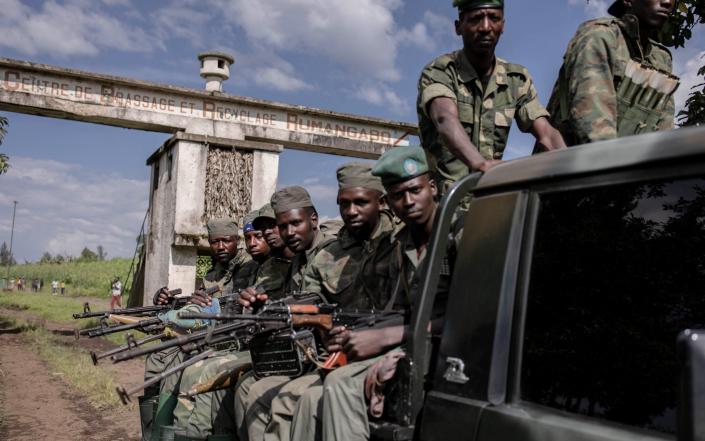
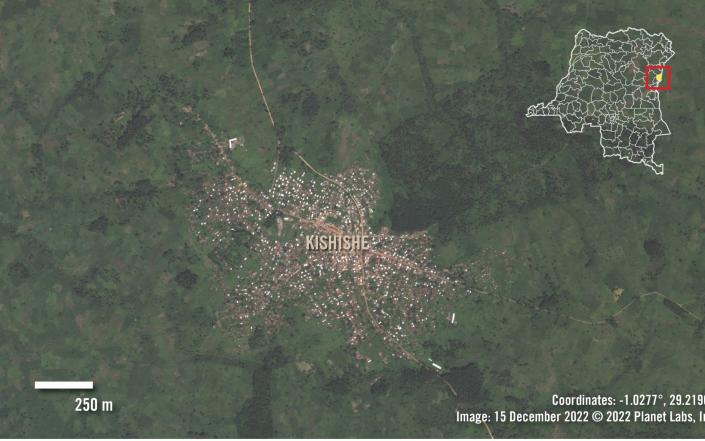
The rebels went door to door, killing those suspected of supporting their rivals, and raping women indiscriminately.
“They found our home. They were two men in military green uniforms. They first took my mother outside and raped her. Then they came for me and raped me. I passed out,” said a 23-year-old who was assaulted on Nov. 29.
“Not knowing how to escape, we locked ourselves in the house. I was with my brothers. M23 fighters came and found us in the house. They told my brothers to leave. They stayed with me,” said a third, 19-year-old woman.
“They told me ‘you, lie down there’, and out of fear and without the strength to resist them, I did as they asked me. That’s how they raped me.”
“I don’t know how I will survive,” she added.
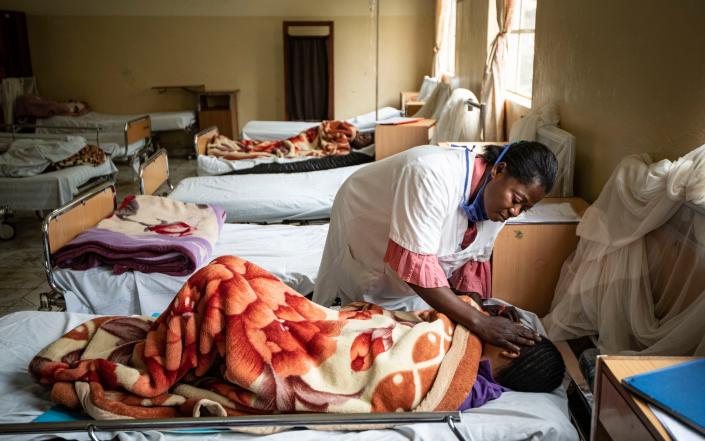
‘The government has done nothing’
M23 has been waging a vicious guerrilla war in eastern DRC against the Congolese army since 2012. The United Nations (UN) has repeatedly accused Rwanda of supporting the rebels, although Rwanda has consistently denied this.
After the attacks – which killed an estimated 171 people – the Congolese government promised action, but to no avail.
“The government said they would do everything they could to hold the perpetrators accountable,” said Jean-Mobert Senga, DRC chief investigator for Amnesty.
“But [the Office of the Prosecutor] has not received a formal request. The government has done nothing, nothing at all.”
The human rights organization urges the authorities to respond with medical and psychological assistance to the victims.
“Since these attacks, the survivors have lived in terror and utter poverty,” said Tigere Chagutah, Amnesty International’s regional director for Eastern and Southern Africa.
“While some rape survivors received most basic medical care from public health centers [still] urgently need medical and mental health care and humanitarian aid”.
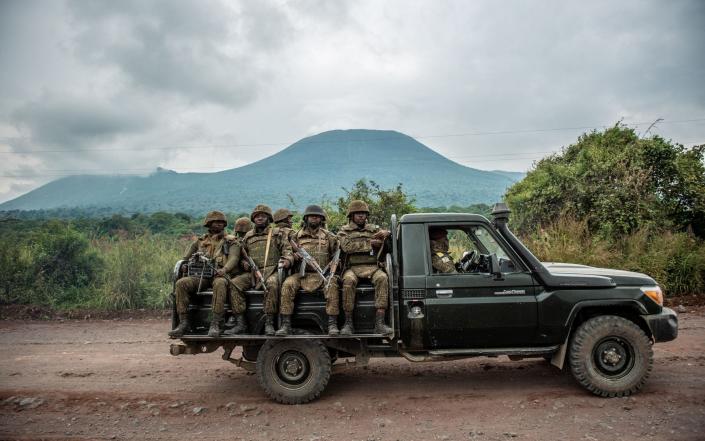
Many of the women interviewed have fled their homes and rely on support from friends and churches.
“They have not received adequate medical care, they still have no shelter or clothing,” said Senga, who interviewed the survivors.
“They hardly got any painkillers. The women we interviewed in mid-December were still in sharp pain, others were bleeding. The nurses said there was nothing they could do.”
“Four of them took turns raping me. I fainted. When the bullets stopped, pitying passers-by took me to the health center,” said one survivor. “I was able to get some medicine from the health center, but I’m still in severe pain.”
Rape kits, including tests for STDs and HIV Prep medications, were available in the days following the attacks, but supplies were depleted by mid-January.
“The women are caught between nurses who are powerless and the government who is not even willing to provide kits, because they suspect the supply could fall into the hands of the rebels,” Senga said.
Rape and sexual violence have been a prominent feature of conflict in the DRC for decades. Amnesty says the government’s failure to investigate the allegations shows “complete disregard for the victims”, even though its capacity to control large parts of the vast country is very limited.
“Rape has been occurring almost daily in eastern DRC for the past 25 years with almost complete impunity. This must end. Very little attention is paid to the need for accountability and justice as a means to break the cycle of conflict,” said Senga.
“As long as people committing these crimes have no repercussions, it’s likely to continue.”
Protect yourself and your family by learning more about Global health security
